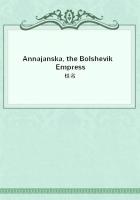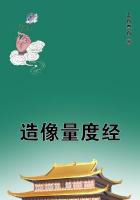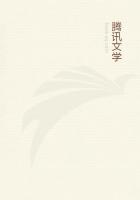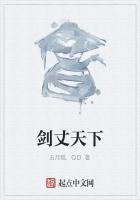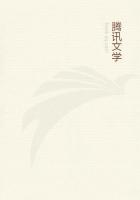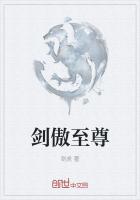For it puts a spirit of gladness in all hearts; and to look on the happy side of nature is common, in their hours, to all created things.Some are vocal under a good influence, are pleasing whenever they are pleased, and hand on their happiness to others, as a child who, looking upon lovely things, looks lovely.Some leap to the strains with unapt foot, and make a halting figure in the universal dance.And some, like sour spectators at the play, receive the music into their hearts with an unmoved countenance, and walk like strangers through the general rejoicing.But let him feign never so carefully, there is not a man but has his pulses shaken when Pan trolls out a stave of ecstasy and sets the world a-singing.
Alas if that were all! But oftentimes the air is changed; and in the screech of the night wind, chasing navies, subverting the tall ships and the rooted cedar of the hills;in the random deadly levin or the fury of headlong floods, we recognise the "dread foundation" of life and the anger in Pan's heart.Earth wages open war against her children, and under her softest touch hides treacherous claws.The cool waters invite us in to drown; the domestic hearth burns up in the hour of sleep, and makes an end of all.Everything is good or bad, helpful or deadly, not in itself, but by its circumstances.For a few bright days in England the hurricane must break forth and the North Sea pay a toll of populous ships.And when the universal music has led lovers into the paths of dalliance, confident of Nature's sympathy, suddenly the air shifts into a minor, and death makes a clutch from his ambuscade below the bed of marriage.For death is given in a kiss; the dearest kindnesses are fatal; and into this life, where one thing preys upon another, the child too often makes its entrance from the mother's corpse.It is no wonder, with so traitorous a scheme of things, if the wise people who created for us the idea of Pan thought that of all fears the fear of him was the most terrible, since it embraces all.And still we preserve the phrase: a panic terror.To reckon dangers too curiously, to hearken too intently for the threat that runs through all the winning music of the world, to hold back the hand from the rose because of the thorn, and from life because of death: this it is to be afraid of Pan.Highly respectable citizens who flee life's pleasures and responsibilities and keep, with upright hat, upon the midway of custom, avoiding the right hand and the left, the ecstasies and the agonies, how surprised they would be if they could hear their attitude mythologically expressed, and knew themselves as tooth-chattering ones, who flee from Nature because they fear the hand of Nature's God! Shrilly sound Pan's pipes; and behold the banker instantly concealed in the bank parlour! For to distrust one's impulses is to be recreant to Pan.
There are moments when the mind refuses to be satisfied with evolution, and demands a ruddier presentation of the sum of man's experience.Sometimes the mood is brought about by laughter at the humorous side of life, as when, abstracting ourselves from earth, we imagine people plodding on foot, or seated in ships and speedy trains, with the planet all the while whirling in the opposite direction, so that, for all their hurry, they travel back-foremost through the universe of space.Sometimes it comes by the spirit of delight, and sometimes by the spirit of terror.At least, there will always be hours when we refuse to be put off by the feint of explanation, nicknamed science; and demand instead some palpitating image of our estate, that shall represent the troubled and uncertain element in which we dwell, and satisfy reason by the means of art.Science writes of the world as if with the cold finger of a starfish; it is all true; but what is it when compared to the reality of which it discourses?
where hearts beat high in April, and death strikes, and hills totter in the earthquake, and there is a glamour over all the objects of sight, and a thrill in all noises for the ear, and Romance herself has made her dwelling among men? So we come back to the old myth, and hear the goat-footed piper ****** the music which is itself the charm and terror of things; and when a glen invites our visiting footsteps, fancy that Pan leads us thither with a gracious tremolo; or when our hearts quail at the thunder of the cataract, tell ourselves that he has stamped his hoof in the nigh thicket.

